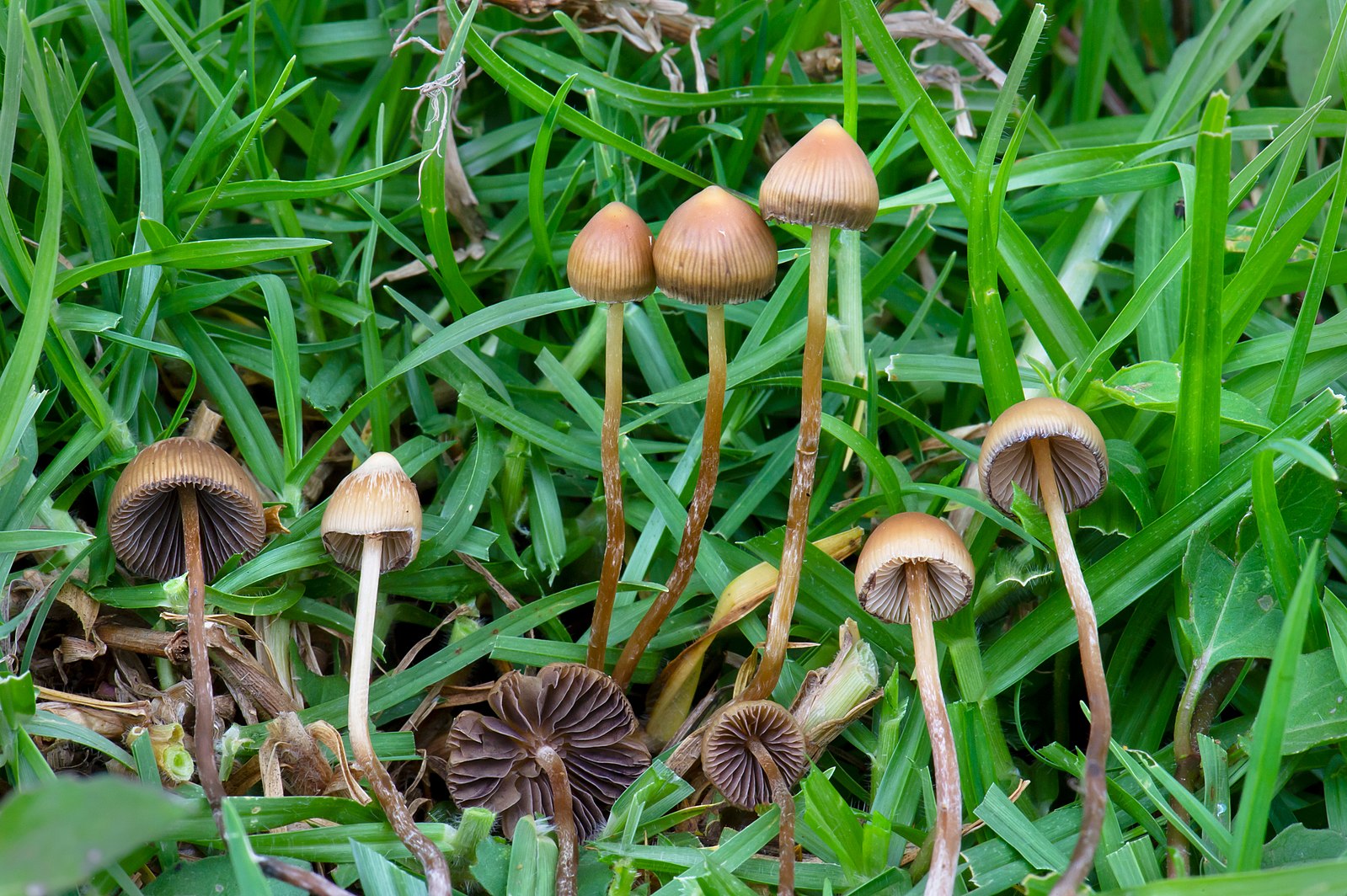With all the talk about the potential therapeutic benefit of psychedelics, it seems like these drugs could be next in line to be destigmatized and legalized for recreational use.
But while research and investment is pouring into psychedelics companies, experts across the emerging industry agree widespread legalization is unlikely to ever happen.
Instead, companies, both private and gearing up to go public, will continue to operate in technical pre-existing legal pathways that have allowed them to build an industry around illegal substances.
The resurgence of interest in drugs that effect the brain’s serotonin receptors is often referred to as the “psychedelic renaissance” after the war on drugs effectively killed a promising research movement back in the 1960s.
Some of the world’s top schools, like Johns Hopkins University and the Imperial College of London, are reporting promising findings. A single psychedelic treatment can end substance dependency, lift people out of treatment-resistant depression and help people in hospice care come to terms with their own death.
Read more: Psychedelic conference weighs treatment efficacy against mainstream viability
In 2015, Michael Pollen published an article in the New Yorker about how therapy using psilocybin, a psychedelic agent found in magic mushrooms, could be used by cancer patients to overcome their fear of cancer and their looming mortality.
That article struck a deep nerve with two Oregonian therapists, Sheri and Tom Eckert, so they decided to do what many at the time considered impossible: to make psilocybin therapy legal in their state so everyone could benefit from this novel treatment.
To meet that goal the duo launched Yes on IP 34 in the fall of 2019, which is an initiative petition to create a licensed and supervised psilocybin therapy program to Oregon. To qualify for the November 2020 ballot, the petition needs to get 145,000 signatures by July 2, 2020. So far over 133,000 Oregonians have signed.
The psychedelics industry is ‘not for the faint-hearted’
The medical benefits of psychedelics are becoming more widely accepted, but that doesn’t mean any government is moving towards legalizing or regulating psychedelic use, says Henri Sant-Cassia, co-founder of The Conscious Fund, a venture capitalist firm invested in the psychedelics industry.
Psychedelics are in a “different order of magnitude” than cannabis, which keeps them from ever being as widely or as casually used as cannabis is, he says. Even micro-dosing, or taking non-hallucinogenic doses of psychedelics, can reportedly have life-changing effects.
Because psychedelics are so powerful governments will never turn around and legalize their use, but they might be willing to introduce regulations to allow for addiction programs or certain clinics to use psychedelics, Sant-Cassia said.
Psilocybin decriminalization has been gaining some traction in the U.S. Just over a year ago Denver, Colorado became the first American city to decriminalize psychedelic mushrooms.
In Canada the House of Commons is set to hear the the country’s first call to decriminalize psychedelic plants and fungi in the fall. Which sounds like a promising step for the industry, but a similar initiative to legalize psilocybin mushrooms was just defeated in California because the campaign couldn’t gather enough signatures of support.
Read more: First official call to decriminalize psychedelics in Canada to be heard later this year
Decriminalization is not the same as legalization, however. In Denver it’s still illegal to sell or possess psilocybin mushrooms, which is why psychedelics companies operate in what Sant-Cassia calls “pre-existing legal channels.”
That’s why companies emerging in the psychedelics space are bringing armies of scientists, doctors and lawyers with them, Sant-Cassia says. Squads of professionals are required because the substances these businesses deal with are still illegal in Canada, America and most of Europe.
“It’s not a space for the faint-hearted. The science is heavy-duty, the legality is heavy-duty, the amount of money you need is much higher than you would ever need for a cannabis company, even a very large one,” Sant-Cassia said. “So it’s very unusual sector.”

Most psychedelics are still illegal, so don’t expect to be able to walk into a pharmacy and buy magic mushrooms anytime soon. Image via Deposit Photos
Psychedelics companies already operating in pre-existing legal frameworks, albeit carefully
Most companies are either developing nutraceuticals, which are plant-derived health products, or nootropics, which are substances that improve cognitive function. This approach uses psychedelics like psilocybin or ayahuasca as ingredients, rather than handing out hallucinogenic doses.
Employing psychedelics as ingredients is fairly common practice for pharmaceutical companies, who already deal with many ingredients that can’t be legally bought and sold in their raw form, he added.
For example, Johnson & Johnson (NYSE: JNJ) makes a drug called Spravato, a ketamine derivative, which is prescribed for treatment-resistant depression.
Read more: Extractors and psychedelic prospectors features at KCSA investor conference
Other companies are setting up clinics in markets like Holland, Mexico or Jamaica where psychedelics are legal, and patients can be given hallucinogenic doses of psychedelics for therapeutic or self-improvement purposes, Sant-Cassia says.
‘Being healthy isn’t just not being sick’
It’s great that people can access these clinics if they want to, says Thomas Anderson, but their lack of regulation makes him nervous. Anderson is the research director of the Psychedelic Studies Research Program at the University of Toronto. He worries a bad trip at an unregulated clinic could create a lot of negative press and set psychedelic research back.
Anderson says beyond medical and therapeutic benefits, psychedelics can be used for self-improvement too.
“In psychedelics I think there is a space for non-clinical populations, or ‘healthy normals,’ to benefit as well, especially as we’re look more into human flourishing,” Anderson said. “Being healthy isn’t just not being sick. You can not be sick and still not living in your optimal condition.”
Society isn’t really set up to encourage people to live their best lives — actually it’s a niche basically just filled up by life coaches, he says. But the resurgence of psychedelics could change that, by bringing doctors and scientists into the space for the benefit of society at large.
As for legalization, Anderson says he’s doesn’t think anyone can really speculate what a government will do.
His program uses online surveys to collect data about people who use psychedelics, but will soon be branching into a clinical study on micro-dosing psilocybin. To do that his team will have to do a lot of legwork for Health Canada, to prove the drugs will be used for research and stored safely. This and other ongoing studies show that research is still possible with psychedelics while they’re federally illegal.

Many psychedelics, like Ayahuasca and psilocybin-containing mushrooms, are deeply interwoven with religious and cultural practices. Image via Deposit Photos
Mature psychedelics industry will have ‘a few dozen successful companies,’ not hundreds
Anderson says he’s heard from a lot of entrepreneurs looking to launch psychedelic startups because they think the industry boom will be big, even without widespread legalization or even decriminalization.
It will be a boom, but the market will actually be quite a bit smaller than everyone is expecting, Sant-Cassia says, with a few dozen successful companies in the space rather than hundreds.
Companies won’t be able to jump into the space with some capital and a can-do attitude like they could with cannabis, Sant-Cassia said. These companies will be the heavyweights with armies of scientists and lawyers to help them navigate the technical landscape.
Actually, at least seven of the companies that will end up as the industry behemoths have already been established, according to Sant-Cassia. Two of the companies he works with, Cybin Corp and Numinous, will be going public later this year and are set up to succeed in the industry, he says.
Institutional investors and capital ventures firms have been pouring money into the space, which Sant-Cassia says has actually made it hard to invest in some ways because companies are over-subscribed.
You can’t just arrive with $5 million and hope to invest, because companies want more than that. They want money plus strategic advantages: Investors need to arrive armed with a plan for how they’ll help the company grow, develop and scale, he says.
Independent investors can get involved through venture capital funds or wait for companies to publicly list, which Sant-Cassia estimates we’ll start seeing by the end of this year.
Legalization isn’t on the horizon
Despite the medical benefits and financial interest in the space, Sant-Henri, Anderson and the Eckerts agree psychedelics won’t be legalized for recreational use anytime soon.
In Oregon, Yes on IP 34 is hoping to gather the final 11,971 signatures they need to create a psilocybin therapy system in the state.
When talking to people to educate them about psilocybin, Tom Eckert said they’ve had the most success when they explain it as “an effective therapeutic option for everyday Oregonians who are struggling, as opposed to talking about radical transformations or saving the world.”
Back in 2015, people would tell him using psilocybin for therapy sounded great, but it wasn’t likely to happen in their lifetime.
“But we always believed we could make history in Oregon in 2020. From there it was just focus and hard work,” Sheri Eckert said.
Their campaign has been backed by some heavyweight psychedelics supporters, like David Bronner, the CEO of the soap company Dr. Bronner’s, who donated US$1 million to the campaign.
“Victory in Oregon this year will fundamentally reshape public discourse and acceptance in this country,” wrote Bronner in a late-April Reddit AMA.
Top image of the psychedelic mushroom Psilocybe mexicana Veracruz, by Alan Rockerfeller via Wikimedia Commons
michelle@mugglehead.com
@missmishelle














